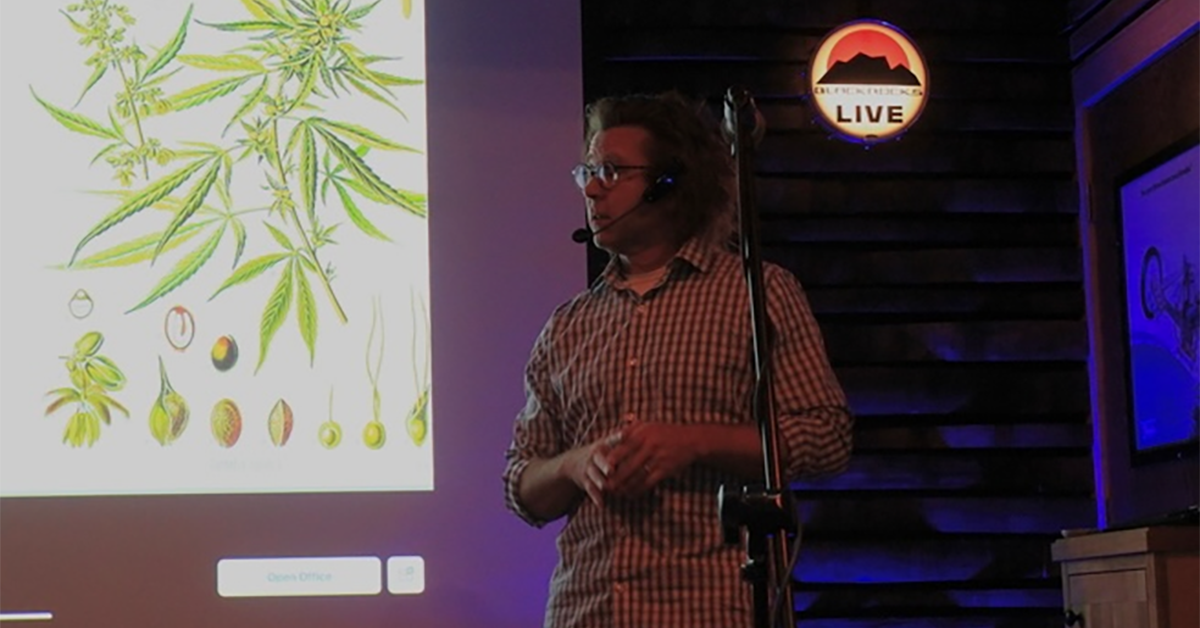Tracing Marijuana's Journey in Michigan Through Science and History

The marijuana plant, renowned for its psychoactive properties, has recently garnered legal status in Michigan. As the acceptance and use of cannabis increase, it prompts a myriad of questions about its origin, biology, and the historical context associated with it.
On the evening of October 10th, Marquette residents and enthusiasts congregated at Blackrocks Brewery. They were there for Northern Michigan University's (NMU) esteemed "Science on Tap" series, a monthly initiative held every second Thursday. Sponsored by the Department of Biology and the Department of Earth, Environmental and Geographical Sciences (EEGS), these sessions present an array of educational insights. In October, Lex Koltowicz, an industrial hygienist with TriMedia Environmental & Engineering Services, stepped in with a comprehensive and intriguing discourse on the history, botany, and intricate biology of cannabis.
Koltowicz's exploration began with hemp's ancient roots. The origins of this versatile plant remain a topic of debate. Nonetheless, historical records depict its journey through Afghanistan, its maritime shipment from Portugal, and its notable utilization across regions like Southeast Asia. He delved further into a genetic examination of the cannabis plant, shedding light on the diverse variants stemming from each geographical area.
Highlighting cannabis as one of humanity's most ancient crops, Koltowicz elucidated its multifaceted anatomy. Beyond its renowned psychoactive traits and oil extraction capabilities, its stems played a pivotal role in creating cords, fabrics, paper, and several other products. This enlightening session sparked a flurry of queries from NMU students.
Witnessing a burgeoning interest in cannabis programs at NMU, more students are veering towards specialized fields like medicinal plant chemistry. For many, "Science on Tap" was not just another event but a chance to deepen their understanding and incorporate newfound knowledge into their academic pursuits. One such student, Cole Edgcombe, in his third year at NMU and enrolled in the cannabis law course, found the session particularly enlightening.
Edgcombe's revelations from the session were twofold. Firstly, he was captivated by the plant's genetics and the ease with which marijuana could be cloned. Secondly, the intricate association between the origins of cannabis and the historical slave trade was an unexpected revelation. He emphasized the cruciality of dispelling misconceptions surrounding marijuana, especially in the academic environment of Michigan. "In this evolving era with pervasive cannabis presence, we must transcend existing stigmas. It's paramount to be well-informed, especially given NMU's extensive programs. It helps in understanding what our peers are delving into," Edgcombe remarked.
The "Science on Tap" series has consistently served as an enlightening platform, with the latest session on marijuana being testament to its success. From contemporary research to intricate debates on cannabis use, anatomy, and proliferation, attendees were privy to a wealth of information. For those eager to continue their academic journey, NMU's "Science on Tap" promises more insightful sessions in the coming months. Details of forthcoming events can be gleaned from NMU's official "Science on Tap" webpage.
Share this article:
Spotted a typo, grammatical error, or a factual inaccuracy? Let us know - we're committed to correcting errors swiftly and accurately!








 Helpful Links
Helpful Links